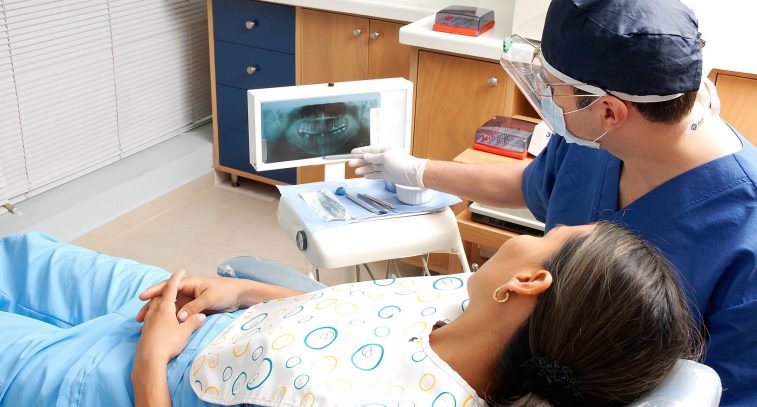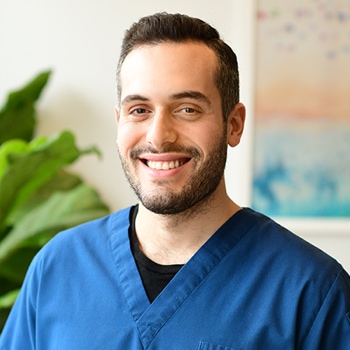What to know ahead of your first tooth extraction?
The Marks Dentistry team are here to help set expectations and put any concerns you may have to rest.
When is a Tooth Extraction Recommended?
Tooth extraction may be necessary in both teens and adults if there are signs of:
- Tooth infection
- Overcrowding, which can breed hard-to-reach plaque and bacteria
- Excessive tooth decay that has compromised the entirety of the tooth and root
- The instance of wisdom teeth
- Stubborn baby teeth
There are also other instances of advised tooth extraction. For example, when having braces put on, it may be necessary to remove one or two teeth in order to provide the necessary room for the remaining teeth to shift into the desired place.
How Complicated is the Average Tooth Extraction Treatment?
On average, tooth extraction is a simple and relatively fast procedure. This is especially true when being handled by the Marks Dentistry team.
Performed via local, general, or intravenous anesthesia (or, when required, a combination), the removal of visible teeth is a straightforward and commonly practiced procedure. Broken teeth, teeth that have not yet fully emerged from the gum, or wholly impacted teeth need a longer and more involved treatment. When in doubt, contact us here at Marks Dentistry ASAP to get your tooth treated early in order to keep the process on the shorter side. The length of the treatment, as well as whether it needs to be outpatient, will influence its pricing.
How to Prepare for a Tooth Extraction
Preparing both before and after a tooth extraction is essential for fast and thorough healing post-extraction.
In order, here is what to do (and expect) throughout the tooth extraction process:
Provide Your Complete Medical History (and Ask Questions!)
Ahead of your procedure, you will be asked to provide your complete medical history. Specifics that are important to be included include liver disease, any artificial joint replacements, if you have an impaired immune system, or if you are taking blood thinners. The procedure will be tailored depending on your medical history to avoid any drug interactions or potential risks.
Also, we encourage our patients to ask as many questions as they wish. Your comfort and trust are among our top priorities!
Avoid Eating Prior to Your Tooth Extraction
Unless otherwise stated, you should not eat anything 12 hours prior to your tooth extraction. This is to mitigate nausea. If your dentist selects local anesthesia for you, this fasting period will likely shrink.
It is also vital to note that you cannot smoke for the same 12 hours before your treatment and for 24 hours after.
What to Know During the Treatment
It is highly recommended to avoid wearing lipstick, to bring chapstick in order to avoid lip-cracking, to not wear jewelry, to avoid wearing contact lenses, and, if you have long hair, to wear your hair up and out of your face in order to keep the treatment streamlined for our team.
Organize Transport, Care, and Insurance
Because you will not be permitted to drive yourself after your procedure it is strongly advised that you organize your transport home ahead of your tooth extraction. This is due to the lingering effects of anesthesia, regardless of which type you receive.
This extends to arranging for childcare and having a trusted person around you to monitor your health and help you with daily tasks in the 24 hours after in case you are feeling fatigued or nauseous. Stick to drinking only water and eating soft foods for this time period.
Another factor to organize ahead of your procedure is your insurance. Speak to your insurance company ahead of time to gauge how much of your treatment will be covered by your insurance, whether it be whole or partial.
Have Further Tooth Extraction Questions? Reach Out to Marks Dentistry Today
Contact us to have any dental-related questions answered or to book your first (or next!) appointment. Our team is always happy to help.




